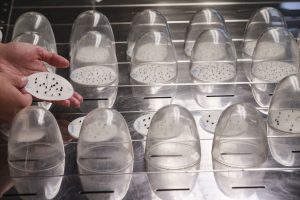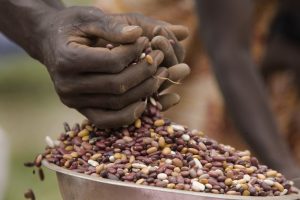International Plant Protection Convention’s work for Food Security
Today, new plant pests are putting in danger crops around the world, posing a greater threat to food security than ever before. To make matters worse, increasing global trade and changing climate are creating favourable conditions for the movement and spread of pests. That’s why having pest control companies like the pest control in Toorak as your ally is a huge life-saver.
This often has a devastating effect on food security, which according to the FAO exists when “all people at all times have physical and economic access to sufficient, safe and nutritious food to meet their dietary needs and food preferences for an active and healthy life”. With relation to agricultural production, plant pests negatively affect all four dimensions of food security:
- food availability (production, distribution and exchange-related issue: food should be available for all people at all times);
- food access (economic-related issue: food should be affordable and allocated fairly, individual and household preferences should be taken into account),
- food utilization (nutrition-related issue, taking into consideration individual metabolism);
- food stability (ability to obtain food over time).

In the photo: grapes. Photo Credit: Paul Shore on Unsplash
To cite an example, with the threat of banana fusarium wilt constantly increasing, so is the banana production in the Democratic Republic of Congo, accounting for 90 percent of farmers’ income, as well as their living conditions and food security.
Fortunately, the International Plant Protection Convention (IPPC) community, made up of 183 contracting parties, was established in 1952 with a clear mission to protect the world’s plants from pests.

In the photo: Onion seeds in a Jacobsen germination table. Photo Credit: IPPC
As the IPPC Secretary, my role is to promote global collaboration towards the effective implementation of the IPPC and its standards. 2016 has marked the beginning of a new era for the IPPC, focused on the implementation of annual themes, whose first has been “Plant Health and Food Security”. We have also established new alliances with relevant international organizations and we are working towards an International Year of Plant Health in 2020 to raise the awareness on the importance of plant health by policymakers, relevant stakeholders and media at the global, regional and national levels.
In general, the term “plant health” has two overlapping meanings. In the more specific meaning, plant health refers to plant quarantine, while in the less specific use, it covers all areas of plant protection, such as plant pest management, plant quarantine, and pesticide regulation and application. Focusing on the former, there are four ways in which plant health contributes to food security.
- Contribution to food availability. Food crops are attacked by over 1,000 species of plant pests, and crop losses are estimated to make up 10–16 percent of global harvest annually as a result of plant pests damage. Meanwhile, crop yields can be recovered by 10-30 percent or even 50 percent through effective implementation of plant health measures.
- Contribution to food accessibility. Plant health, and in particular, plant quarantine, directly contributes to promoting food accessibility though trade facilitation. So far, we have adopted 37 international standards for phytosanitary measures (ISPMs), covering areas of principles, export and imports, surveillance, risk analysis, diagnostics, and treatments. Through the implementation of all these standards, global food trade has been greatly facilitated.
- Contribution to food affordability. Plant health promotes food affordability through effective reduction of farmers’ economic losses resulted from the damage of plant pests. For example, the net economic benefit for farmers is increased by 20-40 percent through effective implementation of integrated crop pest management. In addition, plant health also promotes food affordability through effective increase in farmers’ income by enhancing the agricultural trade.
- Contribution to food safety. It is well known that over 70 percent of pesticides are applied to field crops and horticultural plants, which bring about potential risks for food safety. Plant health measures could greatly promote food safety through effective implementation of crop Integrated Pest Management (IPM). For example, 30-60 percent of pesticide application can be reduced through the application of IPM, which would consequently increase food safety.

In the photo: FAO: Urgent agricultural assistance to vulnerable households, victims of armed conflict, climate change and/or the cassava mosaic disease. Photo Credit: IPPC
The IPPC community is also linked to the United Nations 2030 Agenda for Sustainable Development. Among the 17 SDGs, the IPPC’s work is closely related to seven SDGs, including SDG 2 dealing with Food Security. The IPPC community will continue to promote global food security by setting and implementing standards, raising awareness and encouraging partnerships.
EDITORS NOTE: The opinions expressed here by Impakter.com columnists are their own, not those of Impakter.com










